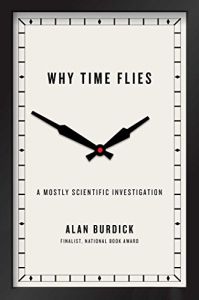Únase a getAbstract para acceder al resumen.

Únase a getAbstract para acceder al resumen.
Alan Burdick
Why Time Flies
A Mostly Scientific Investigation
Simon & Schuster, 2017
¿De qué se trata?
Science now doubts time’s objective existence, even though the clock delimits every human thought and action.
Recommendation
In this wide-ranging, often personal essay, journalist Alan Burdick, whose previous book was a National Book Award finalist, delves into the philosophical roots of time. However, his interesting, readable examination doesn’t stint on science. Drawing on the work of leading researchers, Burdick presents compelling discoveries about how the brain processes input, effectively “making time” as it goes along. He explains circadian clocks in biologic cells, organs and bodies, and he investigates how people calibrate and standardize time in social interactions. Philosophers – and later psychologists and neuroscientists – questioned time’s inherence. Albert Einstein revealed its relativity and indivisibility from space. Today’s experts consider “time perception” a purely mental phenomenon, related to consciousness. And so you might ask, does anybody really know what time it is – or what time is, itself? getAbstract recommends Burdick’s absorbing reportage to thinkers who are curious about time and to those who feel time’s pull – like shift workers, insomniacs and jet-lagged travelers.
Summary
About the Author
New Yorker staff writer and former senior editor Alan Burdick has written and edited for The New York Times Magazine and Discover. His first book, Out of Eden: An Odyssey of Ecological Invasion, was a National Book Award finalist.


















Comment on this summary